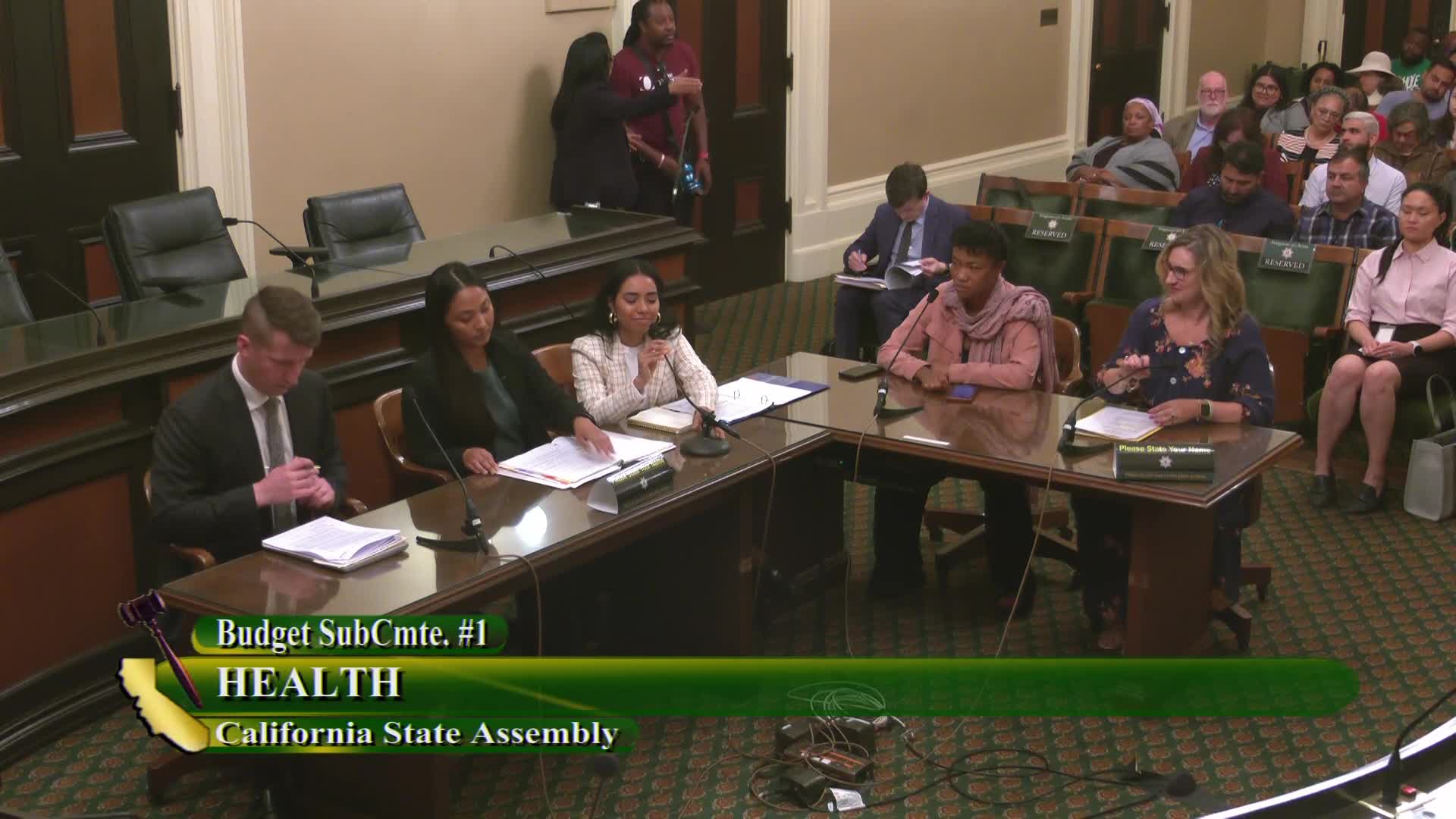Article not found
This article is no longer available. But don't worry—we've gathered other articles that discuss the same topic.
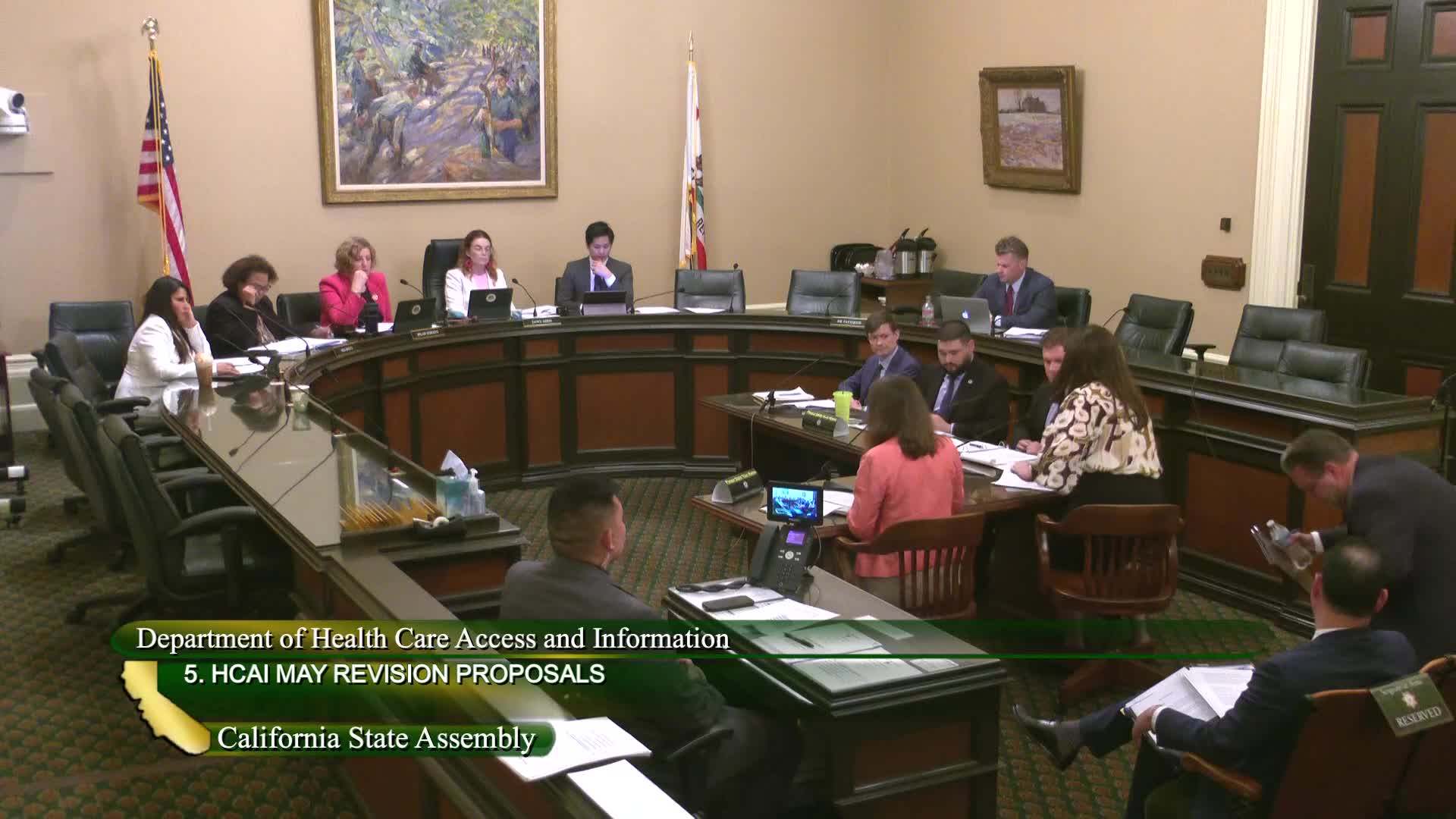
HCAI outlines BH Connect workforce plan, CalRx adjustments and diaper access concept in May Revision
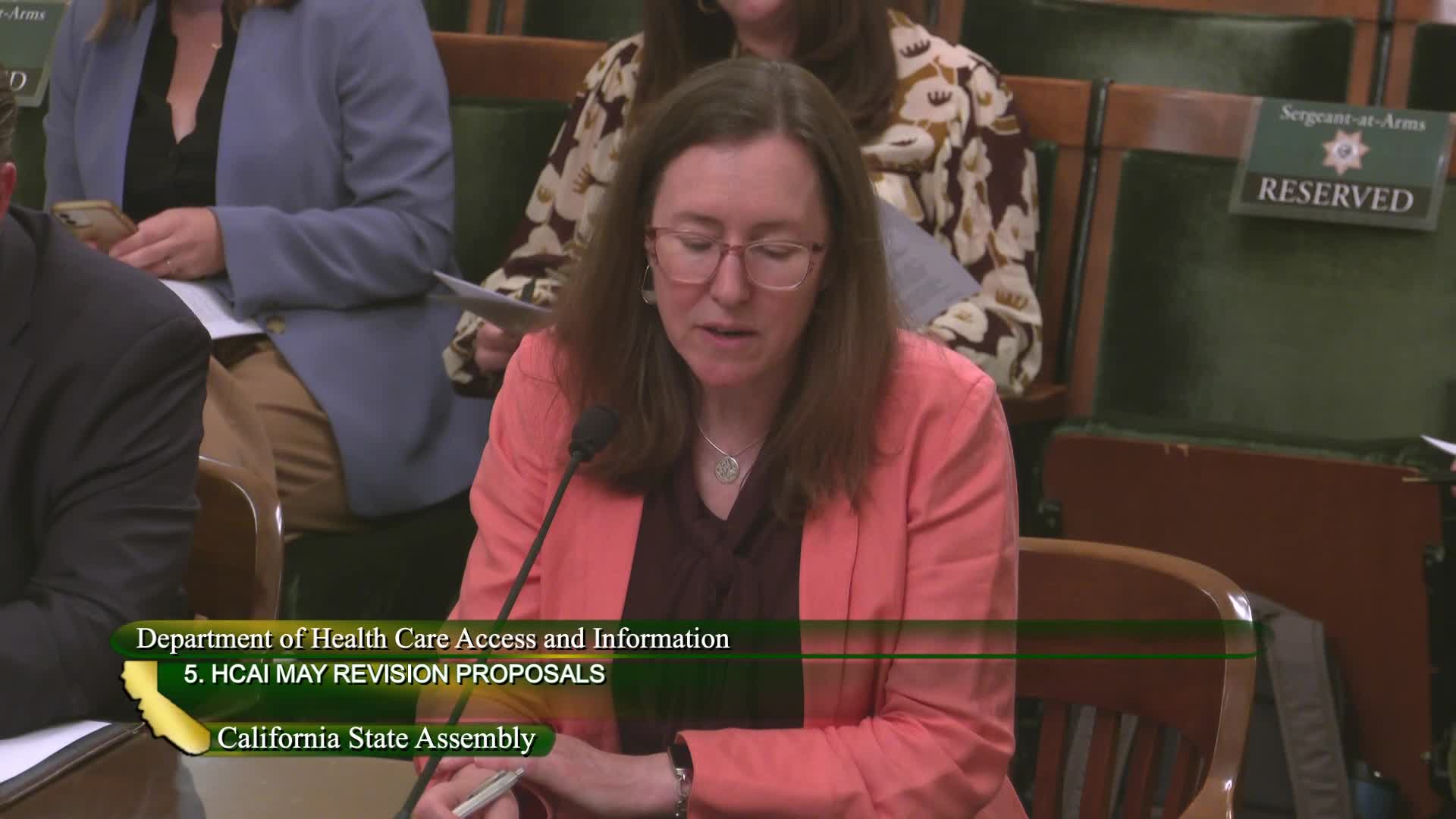
Administration proposes PBM licensure and PBM data reporting to HCAI; DMHC to enforce compliance
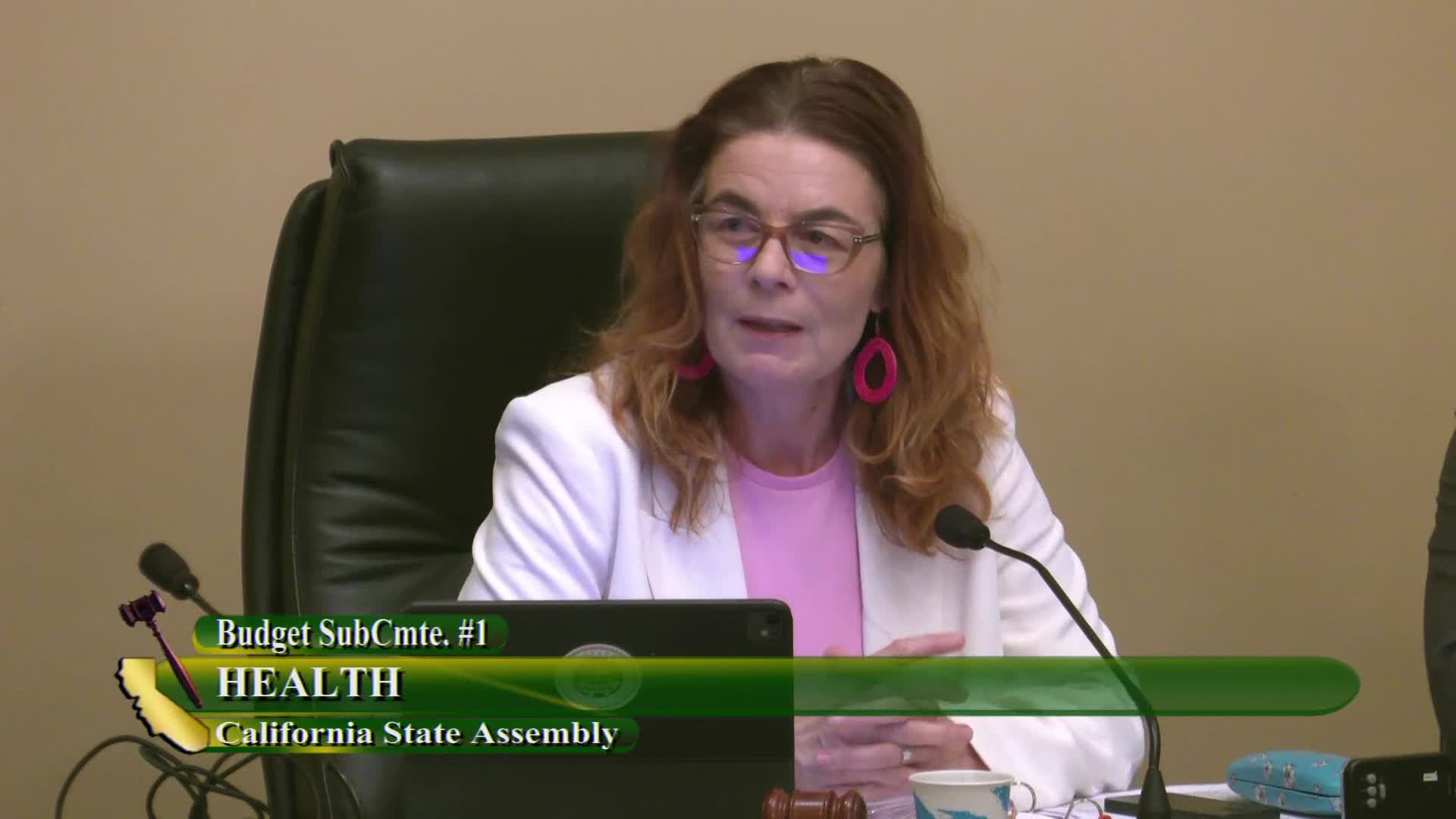
Lawmakers, grantees warn May Revision cut to California Reducing Disparities Project will end contracts midstream
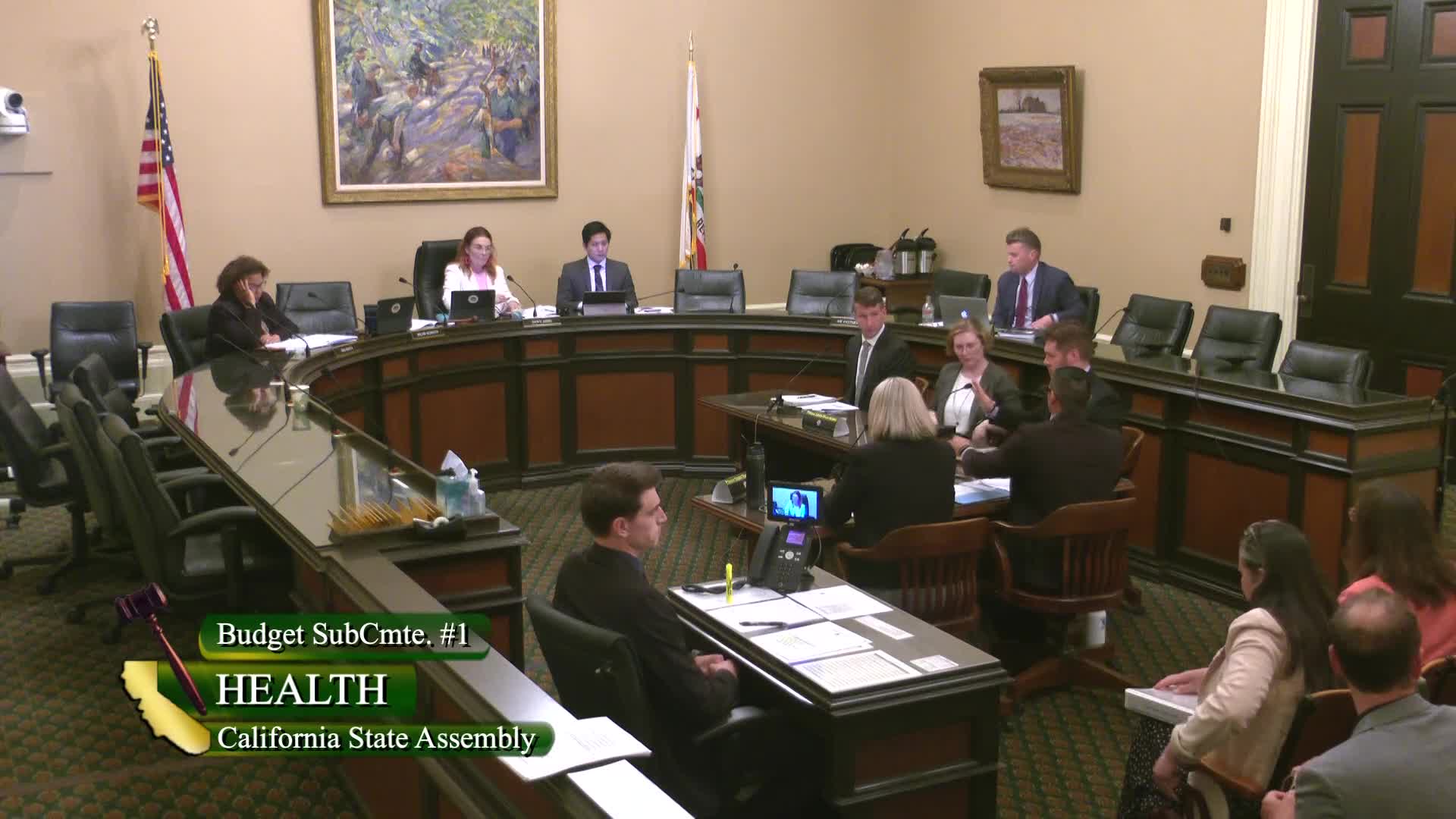
State Hospitals budget trimmed; department says IST and service levels will be preserved
